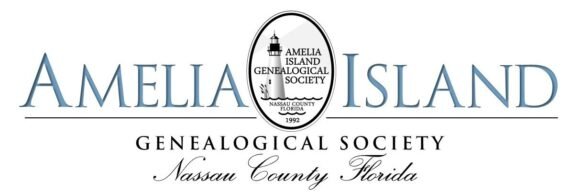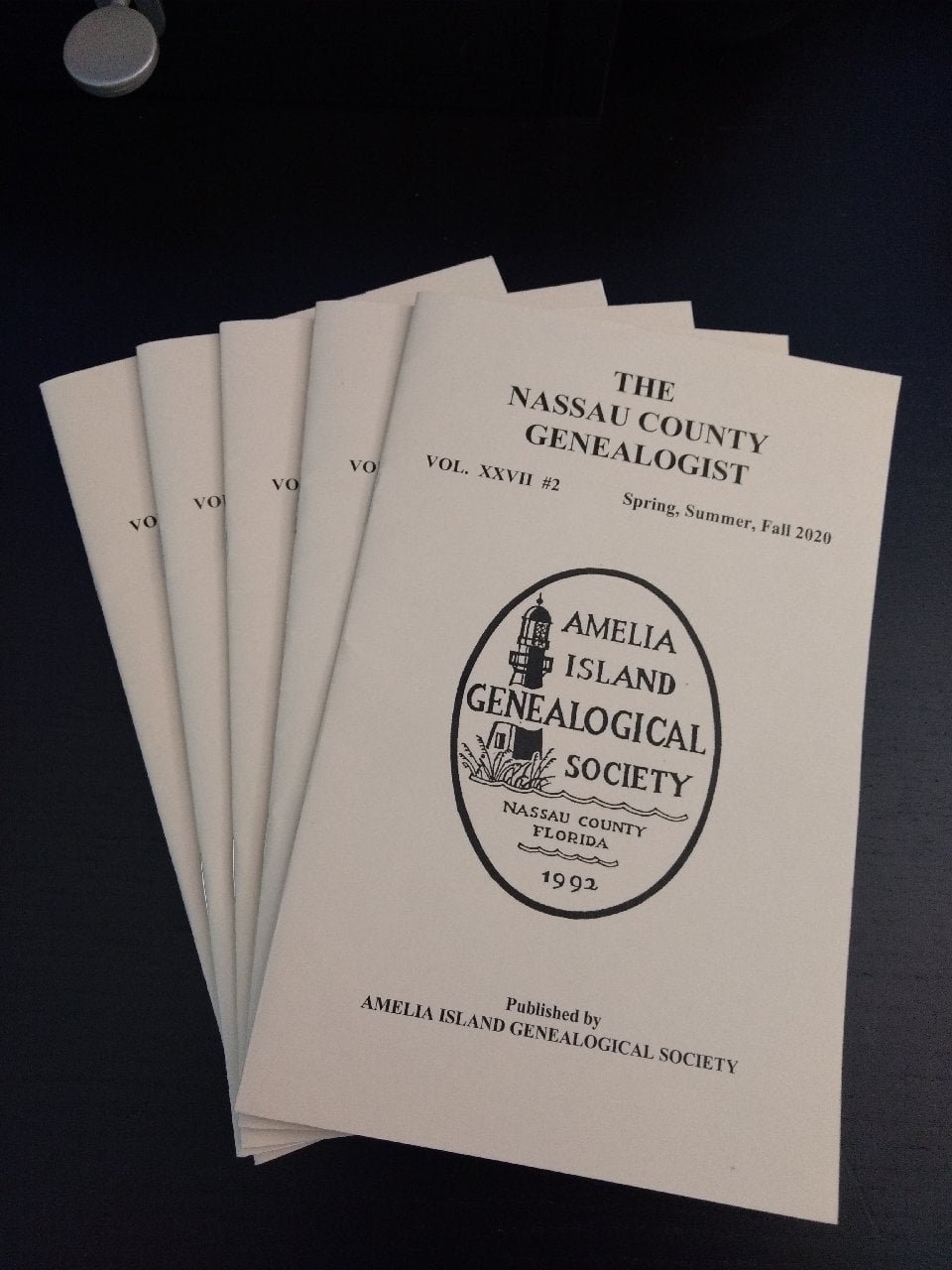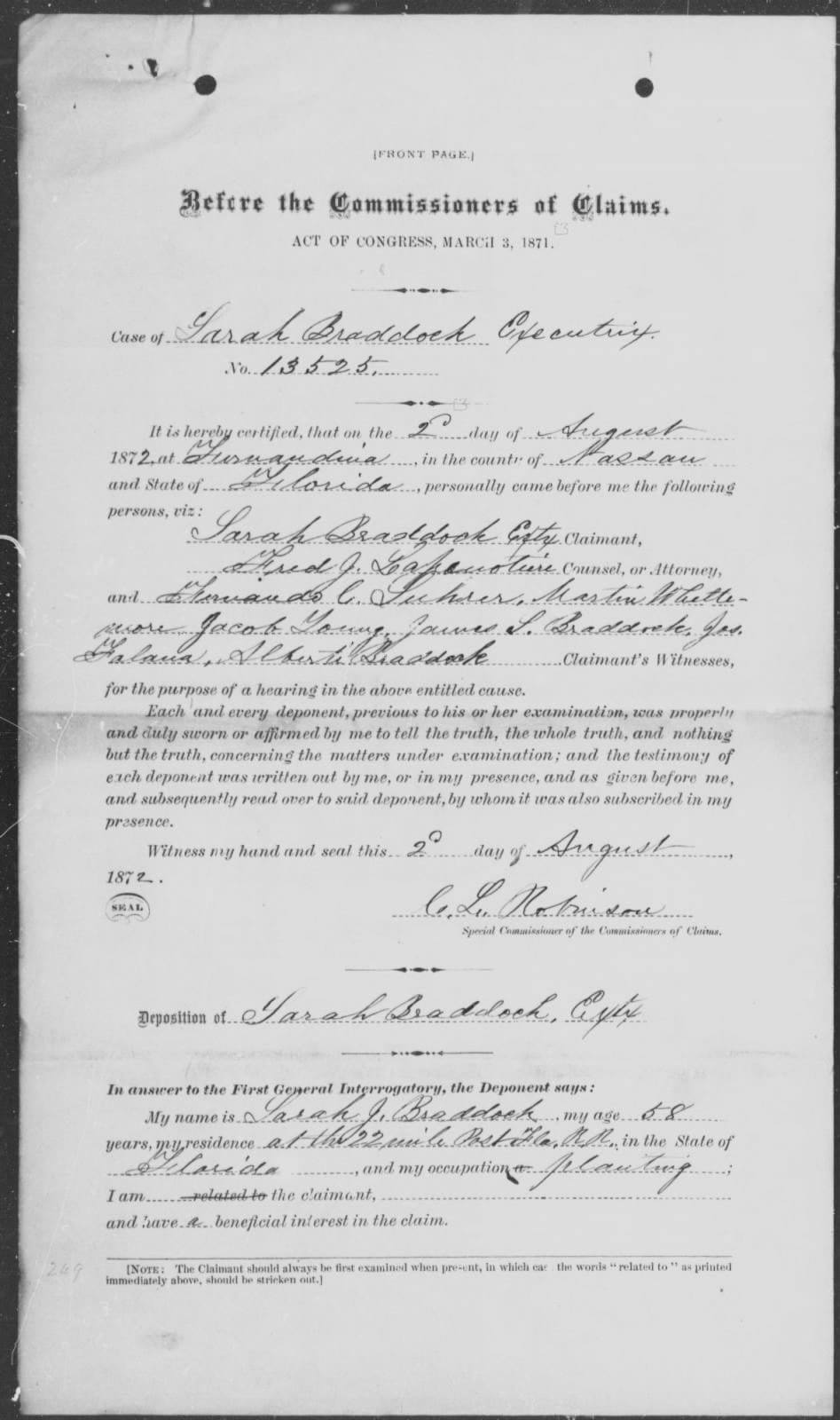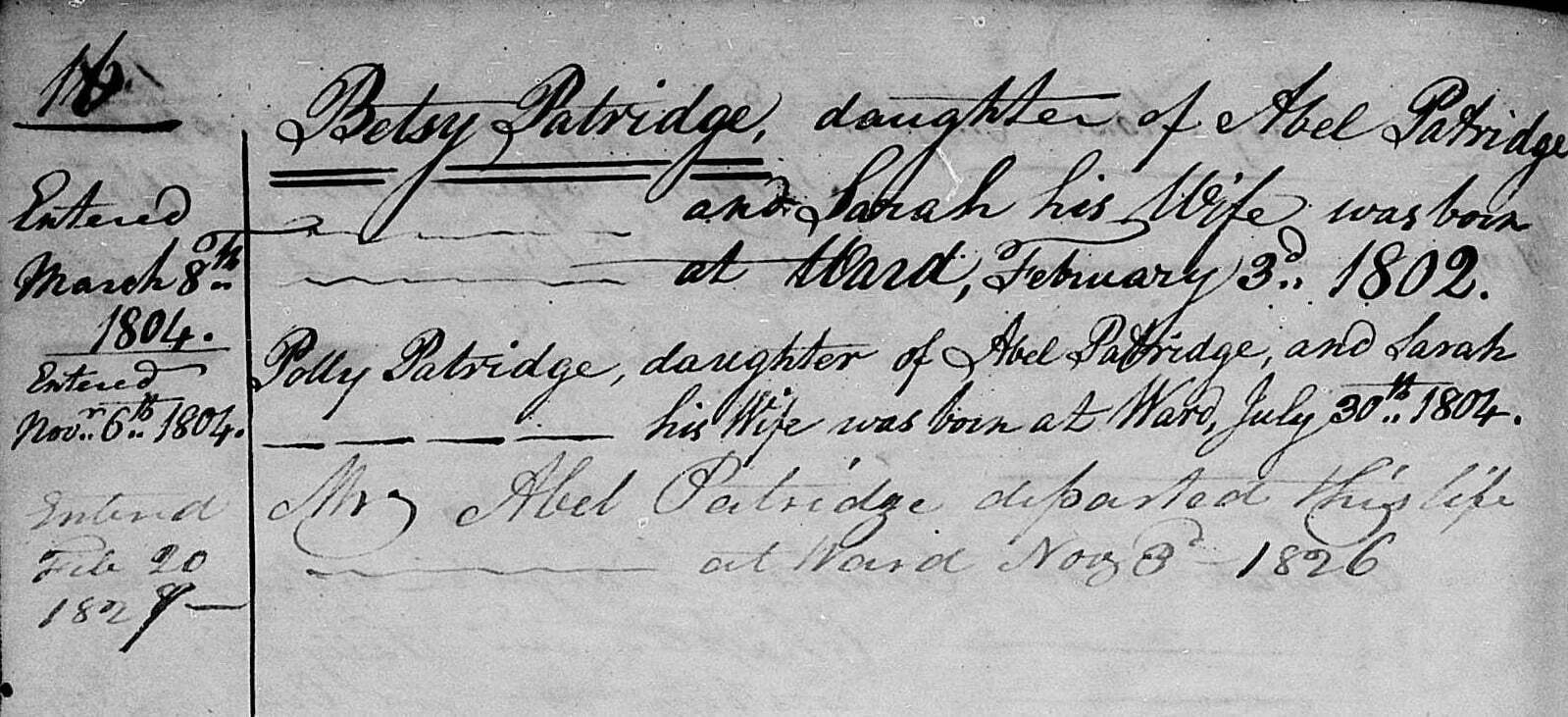The first week of July always greets us with celebrations around the founding of the United States and the hot and sultry Florida weather. While I enjoyed the celebrations, especially our neighborhood fireworks show, I am definitely ready for some cooler weather. In the mean time I’m hibernating in my house while working on genealogy. One of the tasks I took on this month was straightening out the ancestry of an Abel Partridge of Ward, Massachusetts, whom most genealogists recorded as the son of Eli Partridge and Rachel Sheffield who resided in Medway, Massachusetts and Chesterfield, New Hampshire. I found however, that he wasn’t their son, he was the “supposed” son of Abel Partridge and Hannah Cheney of Medfield, Massachusetts. In this instance the “supposed” is how this child was listed in the published vital records of Medfield, Massachusetts, and it implies he was born out of wedlock. Worn, torn, and mutilated, by 1850 the original Medfield vital record books usefulness were nearing the end. Yet the original records would be copied three times over the next 50 years, first by a town clerk in 1850 who was able to consult the books before they were singed, then by two separate committees, one in 1876 created after a fire at the town hall almost burned the records, and the final in 1903, which resulted in the publishing of the Medfield Vital Records “tan book.” As I reviewed these multiple copies doing that “reasonably exhaustive search of all records” we’re suppose




